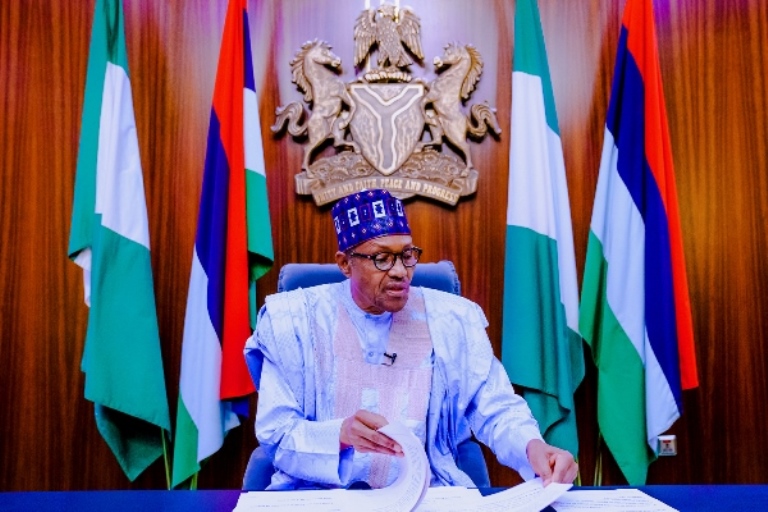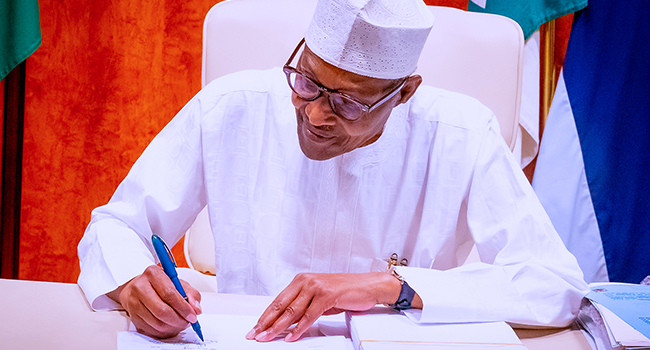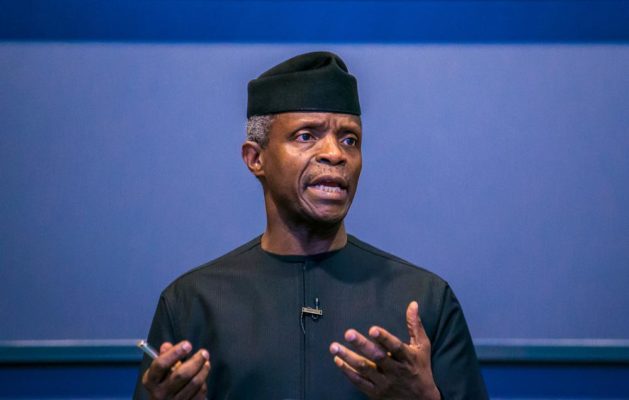
As Nigerians celebrate the enactment of Petroleum Industry Act (PIA) after 50 years of archaic regulations and stagnation in oil and gas sector, President Muhammadu Buhari has reported that the country lost $50 billion worth of investments in the sector in 10 years.
According to him, the six largest world’s oil and gas nation recorded the loss because of the uncertainty of the non-passage of the Petroleum Industry Bill (PIB), lack of progress and the stagnation in the petroleum industry since 1951 when the nation started exporting the oil and gas.
At a ceremony to mark the enactment of the Act, which preceded the meeting of Federal Executive Council (FEC) in Abuja on Wednesday, the President Buhari said the stagnation in the sector for decades affected the growth of the nation’s economy and cited the lack of political will on the part of past administrations to actualize the needed transformation.
President Buhari said the accent to the Petroleum Industry Bill on August 16, 2021, marked the end of decades of uncertainty and under-investment in the petroleum industry.
He said the nation was aware that past administrations identified the need to further align the industry for global competitiveness, but there was a lack of political will to actualize this needed transformation.
The lack of progress, he said, stagnated the growth of the oil and gas industry and the prosperity of Nigerian economy.
In the past ten years, he said, Nigeria lost an estimated $50 billion worth of investments due to uncertainty created by the non-passage of the petroleum law.
The federal government, he said, believed that the timely passage of the Petroleum Industry Bill and the enactment of the Act would help Nigeria attract investments across the oil and gas value chain.
“In view of the value our Nation and investors will derive from a stable fiscal framework for the oil and gas industry, our Administration has found it necessary to work with the two chambers of the National Assembly to ensure the passage of the PIB,’’ he said.
The President noted that the signing of the bill was part of the administration’s commitment to building a competitive and resilient petroleum industry that will attract investment, improve the country’s revenue base, create jobs and support the economic diversification agenda.
President Buhari said: “As a nation that depends on oil resources for the development of other sectors, Nigeria runs a Petroleum Industry that is governed largely by laws enacted over 50 years ago such as the principal legislation; the Petroleum Act of 1969 and other obsolete legislations.’’
He directed the immediate implementation of the framework for the Petroleum Industry Act (PIA) and urged relevant stakeholders to comply and reposition for full activation of the sector within 12 months.
The President appointed the Minister of State for Petroleum Resources, Mr Timipre Sylva, to head the implementation team, and urged all Ministries, Departments and Agencies (MDA) to adjust to the transition, designed to reposition the economy.
“To consolidate the commitment of this administration to delivering the value proposition of this law, I have approved an implementation framework commencing immediately to ensure the industry envisaged in the new law begins to take shape.
He sect 12 months target as the implementation process of act and advised all stakeholders to fully cooperate in ensuring the successful and timely implementation of this law.
President Buhari commended the National Assembly for what he described as their continued pursuit of national aspiration and demonstration of mutual harmony with the executive in the pursuit of patriotic outcome in the passage of the PIB.
“I also commend the entire team in the executive that worked tirelessly to ensure the delivery of this strategic legislation for our country. I thank Nigerians and other industry stakeholders for their contributions and support in achieving this historic landmark,” he said.
According to him, the Presidential assent of the bill to “Petroleum Industry Act 2021” marked the beginning of the journey towards a competitive and resilient petroleum industry that will attract investments to support the nation’s Economic Recovery and Growth Plan.’’
The ‘Petroleum Industry Act 2021’ creates a regulatory environment that would ensure efficiency and accountability across the oil and gas value chain and reposition NNPC to a commercially driven National Petroleum Company that is accountable to the Federation.
The Act also provides for a direct benefit framework that will enable sustainable development of host communities. I appeal to the host communities to look carefully at the contents of the Bill which in the implementation will bring real and lasting benefits to them.
It provides for deliberate end to gas flaring which would facilitate the attainment of Nigeria’s Nationally Determined Contributions of the Paris Agreement through a funding mechanism to support gas flare out project in host communities.













